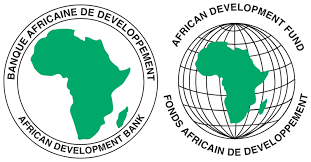AfDB Concludes Workshop Strengthening CAR's Capacity to Fight Against Illicit Financial Flows
The GONAT initiative (Governance of Natural Resources for Transition) focuses on promoting sustainable development through better natural resource management and anti-corruption mechanisms.

- Country:
- Ivory Coast
The African Development Bank Group (AfDB) has successfully concluded a strategic four-day workshop and high-level policy dialogue aimed at strengthening the Central African Republic’s (CAR) institutional and technical capacity to combat illicit financial flows (IFFs) and ensure better governance over resource-backed loans. The event, held in Bangui from June 10–13, 2025, brought together over 80 stakeholders from key government ministries, civil society, the private sector, and local communities under the theme: “Harnessing Africa’s Wealth: Curbing Illicit Financial Flows for Resilient Growth and Development.”
Organizers and Context
Organized by the African Development Institute (ADI) and the Natural Resources Management and Investment Centre (ECNR) as part of AfDB’s GONAT initiative, the workshop was especially tailored for fragile and resource-rich countries like the Central African Republic. The GONAT initiative (Governance of Natural Resources for Transition) focuses on promoting sustainable development through better natural resource management and anti-corruption mechanisms.
Key Speakers and Stakeholder Participation
The event saw active participation from top government officials, including:
-
Prof. Richard Filakota, Minister of Economy, Planning and International Cooperation (and AfDB Governor for CAR)
-
Mr. Rufin Benam Beltoungou, Minister of Mines and Geology
-
Prof. Chantal Laure Djebebe, Minister and Advisor to the Prime Minister on Natural Resources
Their remarks underscored the urgency of addressing IFFs, especially given CAR’s vast reserves of gold, diamonds, uranium, copper, and forests. Minister Beltoungou noted that without robust regulatory oversight, these natural endowments could easily fuel illicit trade, political instability, and unsustainable debt burdens.
Understanding Illicit Financial Flows and Risks
Illicit financial flows siphon billions from African economies annually, impeding domestic development efforts. In CAR, the issue is acute in extractive sectors like gold and diamond mining, where under-invoicing and misreporting are rampant.
Workshop participants learned to apply modern tools such as:
-
Partner Country Method
-
Trade misinvoicing analysis
-
Use of international benchmarks like the Financial Secrecy Index and Corruption Perception Index
These tools aim to detect discrepancies between declared exports and customs records in trading partner countries. For example, Fanta Mariette Samba-Vomi, Director of the Mining Cadastre, stressed how these techniques can uncover undervaluation tactics used to evade taxes and funnel wealth offshore.
Resource-Backed Loans: Opportunity with Caution
An important policy theme was the rising use of resource-backed loans—credit facilities secured by future revenues from natural resources. These instruments, while helping fund crucial infrastructure such as roads, hospitals, and schools, come with risks.
Médard Goudozoui, a geological engineer, warned that without transparency in loan conditions and resource accounting, such loans could lead to long-term economic vulnerability. Participants were encouraged to weigh potential benefits against debt sustainability and legal loopholes.
Inclusion, Gender, and Local Voices
The workshop also elevated the issue of inclusive governance, a cornerstone of AfDB's broader development agenda. At least 40% female participation was targeted, ensuring the inclusion of women and grassroots voices in shaping resource policies.
Mamady Souaré, AfDB’s Country Manager for CAR, emphasized that governance reforms must be gender-sensitive to be effective and sustainable. Echoing this sentiment, Alexia Molotouala, Head of Division at the Kimberley Process Secretariat, noted: “Women play vital roles in mining communities. Their involvement promotes accountability, social cohesion, and policy relevance.”
Outcomes and Way Forward
Participants left the event equipped with a suite of analytical tools, diagnostic frameworks, and practical policy recommendations. These are expected to:
-
Strengthen public institutions’ oversight capacities
-
Improve legal frameworks around natural resources
-
Enable more transparent and equitable loan agreements
Dr. Eric Ogunleye, Director of the African Development Institute, concluded the sessions by reaffirming AfDB’s commitment to ongoing technical support and institutional development in CAR and other fragile states.
“We believe the knowledge imparted will drive sustainable reform, transparency, and resilience in the governance of extractive resources,” he stated.
This workshop represents a pivotal step for the Central African Republic as it seeks to transform its natural wealth into long-term prosperity. With continued support from institutions like AfDB, and a renewed focus on inclusive and transparent governance, CAR is better positioned to curb illicit flows and steer its economy toward sustainable growth.










